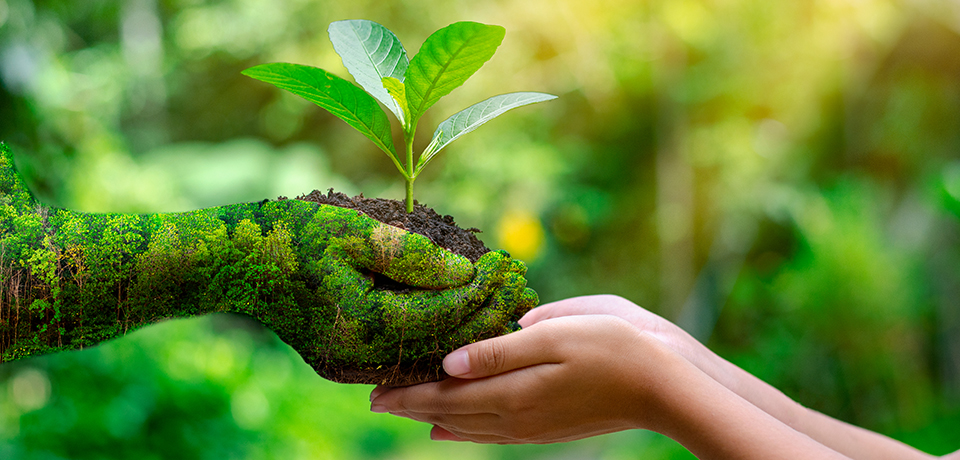Why Do We Need Zero Waste Life Style?
- Home Page
- Blog
- Renewable Energy
- Why Do We Need Zero Waste Life Style?

With the increase in the world population, it has become a necessity to control the wastes caused by production and consumption activities. Wastes generated as a result of human activities give cause to environmental pollution and to adverse effects on human health. Thus, conscious and sustainable consumption is gaining more importance day by day. The number of zero waste projects designed to reduce environmental pollution and to control substances that will harm human health before they reach nature are increasing every passing day. Recycling and recovering of wastes can save more energy and natural resources. The efficient and effective use of limited world resources provides benefits for the environment and public health at a great extent.
What is Zero Waste?
Zero waste consists of a set of principles that focus on the prevention of waste generated by human activities and aim to encourage the reuse of products. In the zero waste approach, it is aimed to recycle and reuse a material to the last limit it can be used. The concept of zero waste does not mean the complete disposal of wastes. It aims to generate as little waste as possible from the products and to reuse thereof as much as possible through recycling.
The definition made by the Zero Waste International Alliance (ZWIA) is as follows:
“The Conservation of all resources by means of responsible production, consumption, reuse, and recovery of all products, packaging, and materials without burning them and with no discharges to land, water, or air that threaten the environment or human health.”
How Can Environmental Awareness Be Gained About Zero Waste?
Due to the unconscious and irresponsible waste of natural resources, the balance of nature that has been ongoing for the past thousands of years began to be drawn off balance. The consumption-oriented lifestyle of people brought up problems such as the reduction of natural resources, global warming and environmental pollution. Recycling of wastes can be planned with the zero waste principle. As a result of recycling of products, reductions shall be observed at a great extent in the need for raw materials as well. Recyclable waste types can be listed as wood, battery, oil, glass, electronics, paper, composite, metal, organic, plastic, textile and medical waste.
In Türkiye, new government-supported steps are also being taken within the scope of zero waste. With the Zero Waste Project of the Ministry of Environment, Urbanization and Climate Change, the protection and efficient use of natural resources has been aimed. The zero waste regulation, created by the Ministry, targets to create sustainable development programs with the effective use of raw materials and resources.
With the training to be given to children as of tender age, it can be ensured that they gain habits about zero waste and being a conscious consumer. By means of the habits the children shall acquire at early ages, recycling can become a natural part of life. With the 5R’s model created for the zero waste approach, training and programs that will enable consumers to participate in recycling can be expanded, be made widespread.
In the zero waste approach, different colors are determined for waste parsing. Parsing process can be facilitated with bags and waste bins used in the right color. These colors, which facilitate the parsing of wastes, are as follows:
- Blue: Paper waste
- Yellow: Plastic waste
- Green: Glass waste
- Grey: Metal waste
- Brown: Organic waste
- Black: Non-recyclable waste
- White: Leftovers
- Purple: Bread crumbs, remains
What are the Advantages Provided with Zero Waste Approach?
The zero waste approach does not only aim to address the nature and waste problems that occur today. It also includes issues such as the benefiting of the future generations from natural resources and them having a clean nature. The zero waste approach may seem like a difficult and demanding idea, however, it is quite easy to implement. With simple separations, parsings we shall make at home, we can reuse wastes and save energy and materials. We can list the advantages of the zero waste approach as follows:
- More efficient use of resources
- Prevention of pollution of nature
- Reduction of risks that may harm the health of living things
- Reduction of greenhouse gas emissions
- Raising of sustainable consumption awareness
- Saving of energy
- Reduction of landfill areas
What is the Importance of Zero Waste Understanding for the World?
With the rapid breakthroughs accomplished in the recent years, various solutions are being produced to provide a better future. Zero waste approach, which is one of the most effective solutions, is one of these solutions... A very effective and simple application that can be realized individually.
Pollution caused by wastes does not only concern a region or a country, but the whole world. Organic wastes produced in living spaces can be deconcoct in nature by spontaneous decomposition. However, almost all of the wastes generated as the result of human activities can remain in nature for hundreds of years. Especially plastic, which is one of the petroleum products, causes pollution in soil and water.
Recycling of wastes collected by parsing is very beneficial for the environment. In particular, products such as metal, glass and paper that can be recycled multiple times save energy and raw materials. Private companies and institutions such as municipalities provide services for the collection of oil which is a domestic waste. Products such as biofuels and soap can be produced with the collected vegetable oil wastes. The energy used in recycling products is much lower than having new production made. By recycling of metal wastes, a very high rate of energy savings can be achieved. Zero waste understanding can reduce the amount of waste that can reach nature. Reducing of environmental pollution and health risks is very crucial for a more livable world.
In Conclusion
With many awareness programs created in the recent years, it is emphasized more and more that natural resources are not unlimited and that they are gradually decreasing. The uncontrolled increase in production increases the damage to soil, water and air to a great extent. Recycling of wastes generated as a result of production and consumption can preserve natural resources and reduce their impact on the environment. Zero waste projects, which are prepared with the support of governments, institutions and individuals worldwide, are expected to contribute to the formation of the necessary awareness to a great extent. Having a waste management plan that institutions can follow allows savings in consumed materials. The reduction in the use of energy and natural resources with a sustainable zero waste management system shall also provide benefits to the national economies.
In case the zero waste approach is adopted and put into operation in the normal course of life, we can leave a clean and livable world for the future generations.
 Insolation Time and Solar Energy Efficiency
Insolation Time and Solar Energy Efficiency  What is Solar Energy? How is Electricity Generated From Solar Energy?
What is Solar Energy? How is Electricity Generated From Solar Energy?  Renewable Energy Sources - Advantages of Renewable Energy Generation and Use
Renewable Energy Sources - Advantages of Renewable Energy Generation and Use  Geothermal Energy Potential of Turkey and its Sustainability
Geothermal Energy Potential of Turkey and its Sustainability